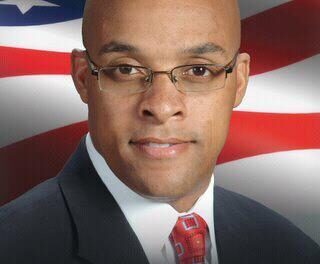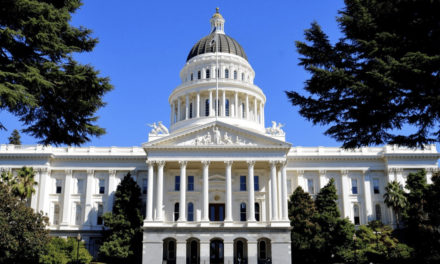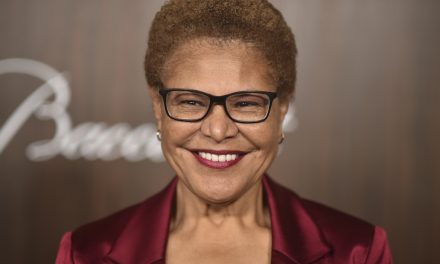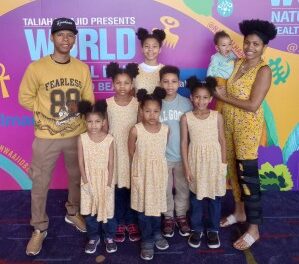

By Frances “Toni” Murphy Draper,
AFRO Publisher
In 1963, the AFRO meticulously chronicled the “March on Washington for Jobs and Freedom,” where the Rev. Dr. Martin Luther King Jr. delivered his now-famous “I Have A Dream Speech.”
As more than 240,000 people of all races and creeds prepared to gather in front of the Lincoln Memorial in Washington, D.C., AFRO Publisher Carl J. Murphy was busy amassing an army of journalists and photographers to cover “The March.”
Lula Patterson, the AFRO’s popular Women’s editor noted that her assignment was to “do a color job on the women…how they look…how they dress…dig the hats, etc.”

“Sir,” she wrote to Carl Murphy, “I am happy to report that the March on Washington for Jobs and Freedom was no high dress affair. I am sure there were those who came along for the fluff…but they were few and far between. So few that if they were there, they were drowned in the crowd. This was a working march.”
Patterson went on to describe–in great detail– what the women were wearing, including the outfits donned by such notables as Lena Horne, Camille Williams and Mahalia Jackson.
Then there was James D. Williams’ story of how “Black and White Americans joined hearts and hands.”
“White and colored, the skilled and the unemployed walked together,” he wrote.
Journalist George Collins noted that on the day of the march “you walked among friends…you talked to everyone. There was not a harsh word, or an evil look tossed your way. You began to feel that this must be the Democracy we have heard so much about.”

Of course, the highlight of the March on Washington was the oratorical genius of the Rev. Dr. King Jr.
“Not only was Dr. King’s speech a masterpiece of logic and rationality,” wrote one AFRO reporter, “it expressed the sum total of what the March on Washington was all about. It points to the future. Its rhetoric and delivery were unsurpassed. And it wrapped up the hopes, dreams and aspirations of the hundreds of thousands present at Lincoln’s Memorial and of untold millions who watched and listened by television and radio.”
For the most part, the March on Washington was peaceful with only three arrests reported. Even the Governor of Maryland, J. Millard Tawes, was impressed by the mass display of unity, congratulating the marchers on their demeanor and decorum. However, according to another AFRO story, “someone tried to ambush passengers in buses returning to Philadelphia after the historic March on Washington.”
While the March was covered by media all over the world, it was the AFRO and other Black newspapers who told the story behind the story. The AFRO took hundreds of photos on the ground, as well as from a helicopter 600 feet above the crowd—including a photo of baseball great Jackie Robinson and his son.

The AFRO provided eyewitness accounts from ordinary citizens who traveled many hours to participate in the massive march. One man, Ledger Smith, had his photograph taken after he skated 698 miles from Chicago to join the protestors in Washington, D.C. The AFRO’s extensive coverage amplified the ongoing inequalities and injustices suffered by African Americans throughout the United States, while embracing the sacrifices so many made to be in the Nation’s capital that cooler than usual August day.
The March on Washington was an enormous display of organized unity that required expert skill in planning and execution. However, before one reporter was assigned, before one picture was taken, before one story was written, “Mr. Carl,” as the AFRO publisher was fondly called, penned this prayer:
“Our Heavenly Father, we thank Thee that although Thou hast brought us to this pleasant land as slaves and chattels, Thou hast also stricken the chains from our arms and our legs and set us free; free in some areas, not in others; free in some respects, not in others. But most of all, there is freedom of speech and freedom of action.
These next days, as we perfect our plans to march on Washington and demonstrate our intentions to be fully free at any cost, strengthen the courage of our leaders, reassure the weak, confound our enemies, and on Wednesday, August 28, 1963, march with us.
Amen.
Immediately after the March (even as AFRO stories were still being written and edited), he wrote:,
“For those who went to Washington this day, leaving their homes and traveling long distances to stand before the nation and bear witness to their demands for freedom now, for citizenship now, and for employment now – make real Thy promise. Blessed are those who are persecuted for the sake of right, for they shall be comforted.”
Amen and Amen.
August 28, 2023 will mark 60 years since the Rev. Dr. King issued a clarion call for jobs and freedom. People marched. People cried. People prayed for change and one result was the passage of the Civil Rights Act of 1964. The next yearn there was the Voting Rights Act of 1965, followed by the Civil Rights Act of 1968. Yet, Dr. King’s dream still has not been realized in too many American cities, too many public-school systems, criminal justice systems, voting rights, housing, health care and many other areas.
There is still so much work to be done in the name of freedom for African Americans throughout this nation.
But there is hope.
There are many more people and organizations today who are champions for social justice. The AFRO is pleased to highlight a few of them in this special edition including Andrew Muhammad of We Our Us, Nicole Hanson-Mundell of Out for Justice, Matthew Reeds of the Reeds Autism and Sarcoidosis Fund, Kevin “Ogun” Beasley and Ericka Bridgeford of the Baltimore Peace Movement, Sharod Wade of Semper Sanitize and Muhsin Boeluther Umar, founder of D.C.’s Hustlaz 2 Harvesters and the Senior Keepers Foundation.
A special thanks to Managing editor, Alexis Taylor, and the talented team of journalists who contributed to this edition, as well as other members of the AFRO team.
We still “have a dream!”
Help us Continue to tell OUR Story and join the AFRO family as a member –subscribers are now members! Join here!
The post The movement continues: we still ‘have a dream’ appeared first on AFRO American Newspapers .











